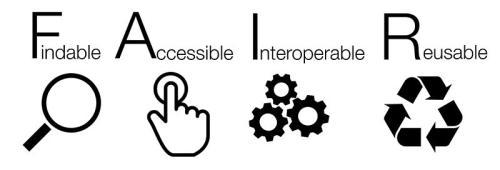FAIR (Findable, Accessible Interoperable and Reusable) Climate and Water Science
About
This course is intended for graduate students or highly qualified undergraduates. The overall objective of this course is to teach students how to conduct data analyses and modeling experiments to produce Findable, Accessible, Interoperable and Reusable (FAIR) science in hydrological, weather and climate studies. Students will be exposed to the philosophy behind FAIR principles, cyberinfrastructure resources for accessing data, community-based computing tools, computer programming skills, and publication of data and analysis results. Utilizing scaffolding and templates provided in lecture and via online resources the students will apply what they have learned in authentic learning exercises appropriate for research settings in hydrological, weather and climate sciences.
Modules
-
FAIR Climate and Water Science: Introduction
Module 1 • 2 hours
This module provides introductory information on FAIR science principles and best practices as well as MyGeoHub, a FAIR science enabled gateway platform.
-
FAIR Climate and Water Science: Data Access
Module 2 • 1 hour
This unit aims to teach different ways to access remote environmental datasets using different protocols with open source python libraries in Jupyter Notebook 5.1
-
FAIR Climate and Water Science: Processing
Module 3 • 2 hours
This unit teaches different ways to process various datasets using open source python libraries in Jupyter Notebook.
-
FAIR Climate and Water Science: Visualization
Module 4 • 1 hour
This module teaches how to visualize geospatial datasets using open source python libraries in Jupyter Notebook.
-
FAIR Climate and Water Science: Publication
Module 5 • 20 minutes
This module teaches how to publish data and source code to various repositories such as github, MyGeoHub, and HydroShare for DOI, sharing, and versioning control.
Discussions
Please login to view discussions.
